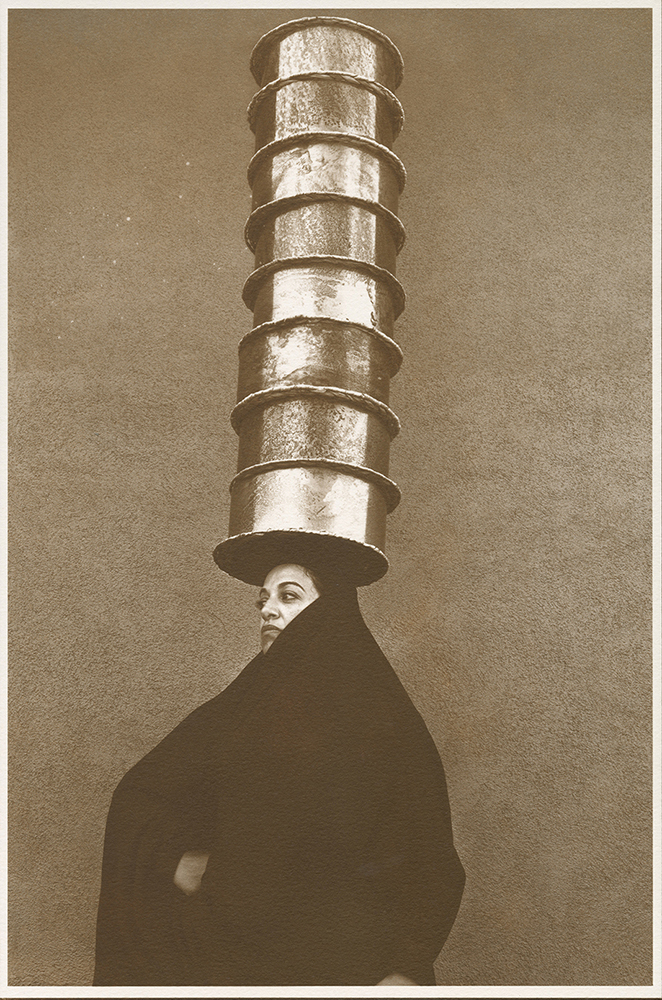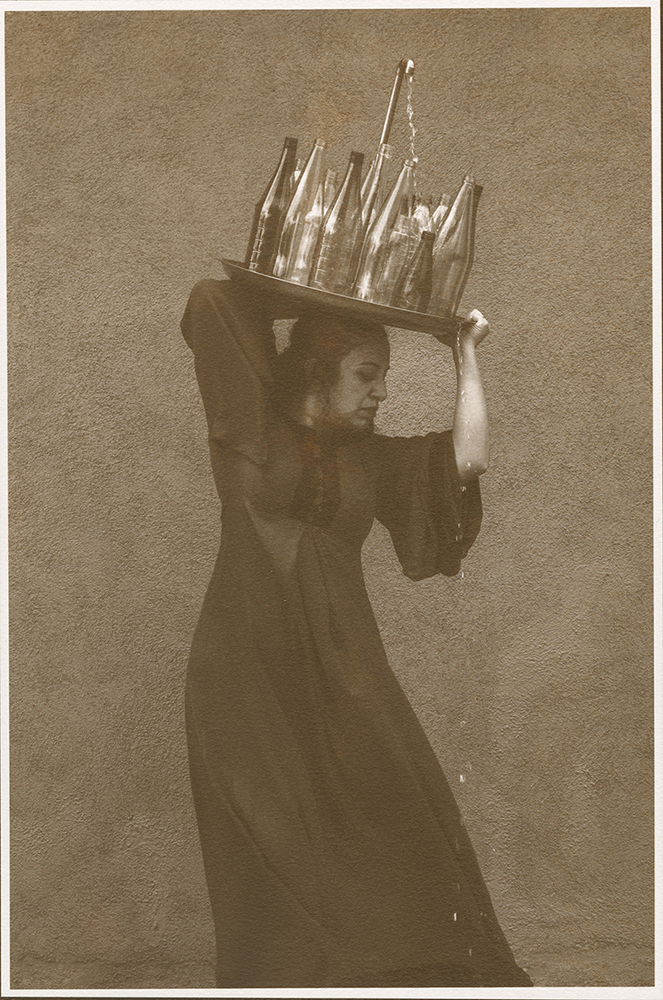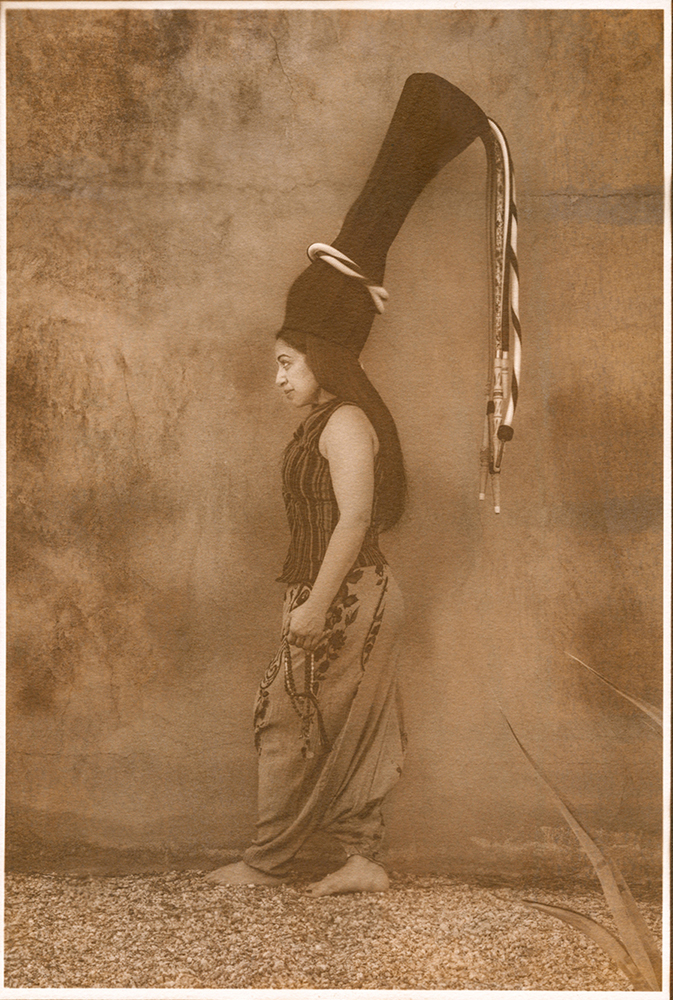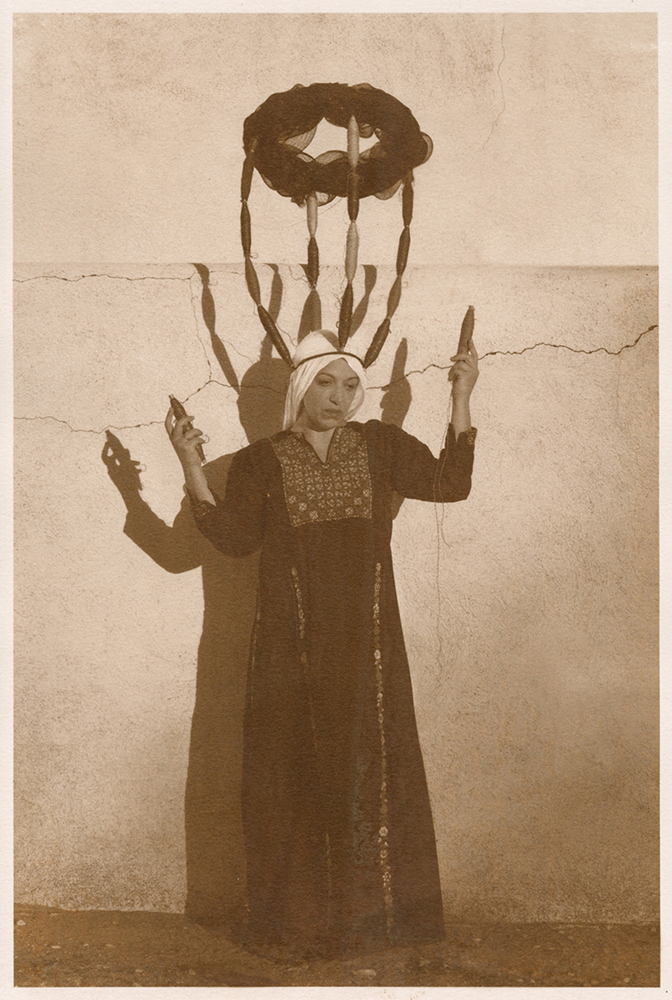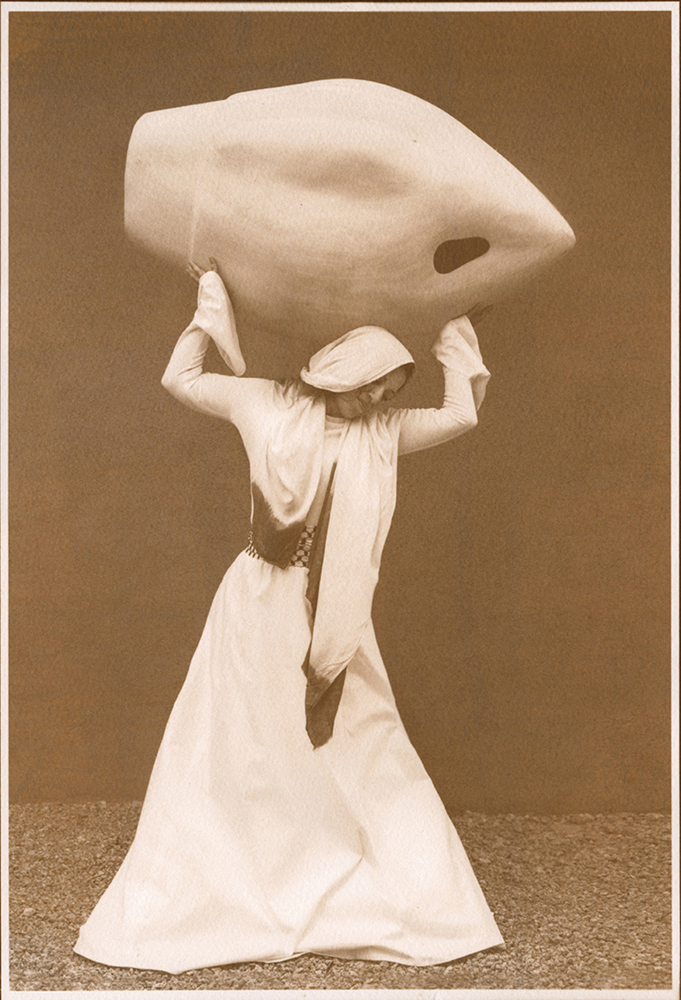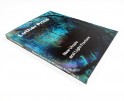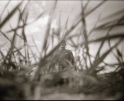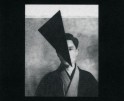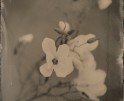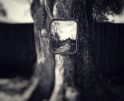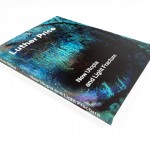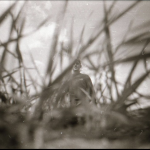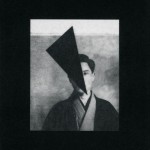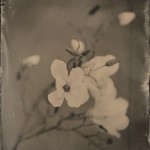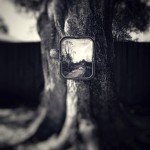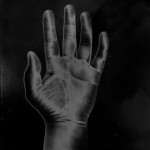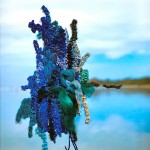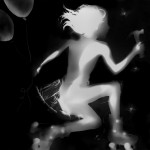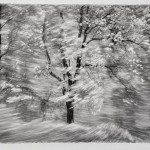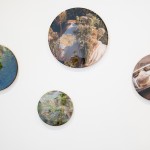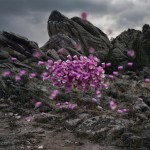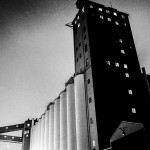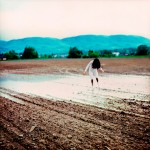The CENTER Awards: Project Development Grant Winner: Sama Alshaibi
Congratulations to Sama Alshaibi for being selected for CENTER’s Project Development Grant recognizing her project, Carry Over. The grant offers financial support to fine art, documentary, or photojournalist works-in-progress and includes a cash award to help complete a project as well as platforms for feedback and professional development opportunities for the work’s final stages. This grant is awarded to projects that are still in progress and have not been exhibited or published.
Juror Lucy Gallun, Associate Curator, Department of Photography, The Museum of Modern Art, New York shares her thoughts on her selection:
I feel extremely fortunate to have served as the juror for CENTER’s 2019 Project Development Grant. The breadth and diversity of submitted projects was truly impressive, and through the process of reviewing over 600 submissions I was exposed to an astounding array of new work. Many of the submitted projects address urgent issues of our time — including series related to climate crises, global migration, and visibility of at-risk or oppressed populations, among many other complex and often-intersecting subjects. Though perhaps not obvious from first glance, Sama Alshaibi’s Carry Over is such a project. (To use the artist’s own words from her accompanying statement, “the project resists superficial analysis.”) Ingeniously and exquisitely conceived utilizing a photographic process associated with the early histories of the medium — albumen printing — Alshaibi’s work not only looks back, but also reflects upon the current moment and the persistent effects of these photographic histories on contemporary representations of women. These pictures employ and interrogate the characteristics found in Orientalist portraits produced by Western-run studios for Western audiences, while also bringing them forward to bear on subsequent generations including our own, reminding us how — to use Alshaibi’s words — “domination is articulated through photographs.”
Lucy Gallun is Associate Curator in the Department of Photography at The Museum of Modern Art, New York. She has curated multiple exhibitions at the Museum including, most recently in 2018, Being: New Photography 2018 at MoMA and Projects 108: Gauri Gill at MoMA PS1. Lucy is also co-editor of Photography at MoMA, a three-volume history of photography at the Museum. Prior to joining the Department of Photography at MoMA, Lucy was the Whitney Lauder Curatorial Fellow at the Institute of Contemporary Art (ICA) in Philadelphia, and she was a Helena Rubinstein Curatorial Fellow at the Whitney Museum Independent Study Program (ISP).
Carry Over
I’m interested in the societal impact of unequal power relations between the West and the Middle East, and how that domination is articulated through photographs. Woven among the aesthetic experiments of my work are interrelated mechanisms of forced migration, social fragmentation, and the aftermath of displacement. By using Albumen printing, a popular print process of the 19th and early 20th century in my newest project Carry Over, I am evoking a near century in which the West controlled the Middle East and North Africa (MENA). Photography studios were largely run by Western photographers, and the images they produced were valued as characterizations of the region. The appetite for the exotic, the distant lands and peoples living a simpler time by Western audiences meant the Orientalist photographer’s vision of MENA women were captured to express inferiority, picturesqueness of native culture and as the exotic sexual object. Carry Over recalls and subverts historical Orientalist portraits made of MENA women who were often depicting carrying vessels of bread or water on their head and staged lounging with ‘oriental’ props that built an uncritical fantasy of the hidden harem for Western audiences. My work amplifies the physical burden of representation found in those photographs, while using traditional printing processes from the colonial era. In one photograph, the once compulsorily ceramic water jug is now shaped as a massive wasp’s nest or a grenade and is hoisted high above the subject’s head. Dressed in all white, the subject depicts the Herculean task of surviving conflict, especially when one’s humanity isn’t afforded to them through their representation. In another image, the mashrabiya, the Arabesque latticework of carved wood normally found on the windows of Iraqi or Egyptian homes, is substituted by laced razor-wire cutouts. They trap the subject’s face into a box formed as a water pipe– another compulsorily cultural object found in most of the historical Oriental photographs of MENA women. I’m connecting the Western desire to peer into the harem’s private world, a space of fantasy and imagination, to the very real invisibility of MENA women’s complexities hidden behind the West’s obsession over their surfaced attire, the hijab. It also references the invisibility of Arabs in general, trapped in war zones, living behind boundaries they cannot escape. In other images, the subject is the physical embodiment of a water fountain or an electricity pole. The implication is that the subject not only is the bearer of the absurd and irrational, but conversely, that in her total isolation, she is transformed from an object of passivity into an active body that sustains and supplies oneself. She is inscribing through her own body, a mechanism of survival. The project resists superficial analysis that reduces MENA women’s rights and opportunities to what they do and don’t wear. MENA women do not merely bear the burden of representation, but also actively and currently, struggle with resource access, security, displacement, socio-economic mobility, and very simply, human rights. Carry Over confronts the historical portraits through a feminist and post-colonial lens.
Sama Alshaibi’s photography, video and installations explores spaces of conflict and the power struggles that arise in the aftermath of exile. She positions her own body as an allegorical site that makes the byproducts of war visible. Alshaibi’s monograph, Sand Rushes In (New York: Aperture, 2015) presents her Silsila series, which probes the human dimensions of migration, borders, and environmental demise. Silsila was exhibited at the 55th Venice Biennale, Honolulu Biennial, Qalandia International Biennial (Haifa), American University Museum (Washington D.C.), Scottsdale Museum of Contemporary Art (Arizona), Marta Herford Museum (Germany) and Herbert F. Johnson Museum of Art (Cornell University, NY). Alshaibi has also exhibited in numerous solo and group exhibitions including Museum of Modern Art (NY), Bronx Museum (NY), Arab American National Museum (Michigan), Headlands Center for the Arts (California), Pen + Brush (NYC), CCS Bard Hessel Museum & Galleries (Bard College, NY), Maraya Art Center (UAE), Busan Museum of Art (South Korea), Institut Du Monde Arabe (Paris), Darat Al-Funun (Amman), and Ayyam Gallery (UK/UAE). In 2019, she received a Artpace International Residency that culminated in a commissioned solo exhibition. Other awards include a Visual Arts Grant by the Arab Fund for Arts and Culture in 2017, the Arizona Commission on the Arts “Visual Arts Grant” in 2018, and a Fulbright Scholar Fellowship to the West Bank, Palestine (2014-2015). Her essays have appeared in several journals and anthologies including Othering & Belonging, Focal Plane, Ibraaz, Social Dynamics: A Journal of African Studies and Frontiers: A Journal of Women Studies. Sama Alshaibi was named the University of Arizona’s 1885 Distinguished Scholar, where she is Co-Chair and Professor of Photography, Video and Imaging.
Posts on Lenscratch may not be reproduced without the permission of the Lenscratch staff and the photographer.
Recommended
-
Luther Price: New Utopia and Light Fracture Presented by VSW PressApril 7th, 2024
-
Artists of Türkiye: Sirkhane DarkroomMarch 26th, 2024
-
European Week: Sayuri IchidaMarch 8th, 2024
-
European Week: Steffen DiemerMarch 6th, 2024
-
Rebecca Sexton Larson: The Reluctant CaregiverFebruary 26th, 2024

